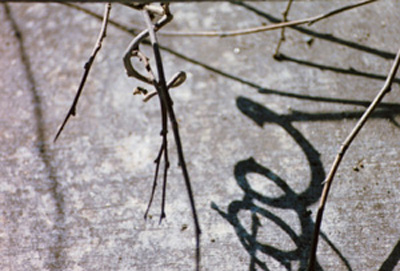
The dox- in doxology means glory. The dox- in orthodox means opinion. The third doxy -- beggar's wench or harlot -- is said to come from "docke," archaic Dutch for doll. The postmodern version comes in soft, inflatable plastic, complete with open, receptive, and brightly painted mouth.
I've been rereading the final volume of Thomas Merton's Journal. He was increasingly impatient with lifeless, petrified, orthodox forms. Commenting on an article he'd just read entitled "The Monk in the Church," an article he found pedantic, absurd and legalistic, he writes:
The Church is a big sacramental machine. ... The whole thing is sickening. The mechanical, cause-and-effect, official machinery of Catholicism. Dreadfully dead, putrid. And yet people are committed to this insane validism, this unchristian obsession. ... And how can you tell them anything else ? It is the whole hang-up on magic: following the instructions of the bottle to get the infallible effect. A monastery is a place where, though there are more detailed instructions on the bottle, we follow them all meticulously, and the whole Church turns on with our magic tonic. ... We do this because we think it makes us respectable: we are fully justified by Tierce, Sext, None, Vespers and Compline and by blind obedience to the ascetic Dad no matter how absurd. The Church is a great treadmill, and when you turn it, it churns out an ineffable substance called grace, and he who gets his pailfull is hereafter untouchable, impervious to everything, neither man nor God can tell him anything. He is justified. He is right. He has a right to bash your head in if you even think of questioning it.
-- December 24, 1967
Of course, Merton was also profoundly, irrevocably, traditionally Catholic. And his writing reveals the glorious heart of the Church, the beautiful, mystical core that suffocates under countlessly accreted layers of culturally-determined opinion and the scandalous corruption and degeneracy of its priests using young children as sex dolls.
In New Seeds of Contemplation, for example, he writes
The biggest paradox about the Church is that she is at the same time essentially traditional and essentially revolutionary. ... The living Tradition of Catholicism is like the breath of the physical body. It renews life by repelling stagnation. It is a constant, quiet revolution against death. ... And yet this tradition must always be a revolution because by its very nature it denies the values and standards to which human passion is so powerfully attached. To those who love money and pleasure and reputation and power it says: " Be poor, go down into the far end of society, take the last place among men, live with those who are despised, love other men and serve them instead of making them serve you. Do not fight them when they push you around, but pray for those who hurt you. Do not look for pleasure, but turn away from those things that satisfy your senses and mind and look for God in hunger and thirst and darkness, through deserts of the spirit in which it seems madness to travel. ... This is the most complete revolution that has ever been preached: in fact, it is the only true revolution, becuse all the others demand the extermination of somebody else, but this one means the death of the man who, for all practical purposes, tou have come to think of as your own self.

Stephen Batchelor, writing from a Buddhist perspective in Living With The Devil, says
As religions grow from humble beginnings into churches and orthodoxies, the narrrow path turns into a brightly lit highway. The risk of embarking on a journey into the unknown is replaced by the confidence of setting off on a well-planned excursion. Homelessness starts to feel like home again. The freedom of the open road is replaced by the drudgery of repeating a cycle of routines. As we proceed along the well-trodden paths of Buddhism, Christanity, Judaism or Islam we may begin to weary of their certainties. Perilous trails that branch off the main track and peter out in the anarchy of wilderness catch our attention. We realize that the path we are taking might disappear into a pathless land.
But what about those of us who start out in the anarchic, pathless land, and whose circuitous way -- barely distinguishable from being lost -- crisscrosses first one, then another well-traveled road ? Passersby, some in Sunday best, others with shaved heads and rakusus, draw back in alarm from the wild-eyed creature crashing out from the underbrush, lurching across the macadam, and plunging back into the woods on the far side of the road. Who or what was that ? Some sort of demon ?
"Have you accepted Jesus Christ as your personal savior ?" cries a figure waving a white leather HOLY BIBLE high overhead. The sun reflecting off the cover's gilt "I" is blinding.
"The lost are like that ... but worse." calls another, kindly, trying to comfort.
A third stands at the roadside and quietly says, as if addressing the thicket itself, "To study the Buddha way is to study the self. To study the self is to forget the self. To forget the self is to actualize the myriad things. When actualized by myriad things, your body and mind as well as the bodies and minds of others drop away. No trace of realization remains, and this no trace continues endlessly."
No comments:
Post a Comment